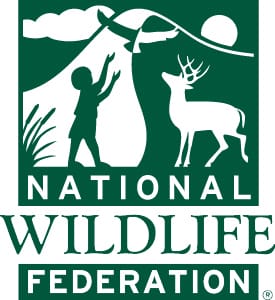SFRED: Time to modernize 30-year-old rule to protect fish, wildlife, water


Washington, DC -(AmmoLand.com)- As a new federal fracking rule continues to come under fire, a national sportsmen’s coalition is defending it as a commonsense update of 30-year-old regulations aimed at safeguarding fish, wildlife, water and other valuable resources on our public lands.
The Sportsmen for Responsible Energy Development coalition reacted Wednesday to criticisms aired during a hearing of the House Subcommittee on Energy and Mineral Resources. The updated regulations for national public lands, released by the Bureau of Land Management in March, are intended to complement state regulations to ensure that fracking fluids and wastewater are handled safely; well casings are strong enough to stand the high-pressure fluids; and that companies disclose what chemicals they’re injecting underground.
“As the technology has advanced, where and how fracking occurs has changed dramatically in just the last 10 years while rules to safeguard our water and wildlife have not been updated for more than three decades. The BLM’s new rule is a reasonable upgrade to ensure there’s a minimum standard for national public lands that are managed for a number of uses, including hunting, fishing and recreation,” said Kate Zimmerman, the National Wildlife Federation’s public lands policy director.
Corey Fisher, the energy team lead for Trout Unlimited, noted that a recent Environment Protection Agency study of existing data on fracking revealed gaps in information, including the frequency of on-site spills, but did point out potential vulnerabilities to water sources such as inadequate well casings and spills of fracking wastewater.
“The BLM’s new fracking rule includes important changes to protect water quality, such as robust well-casing standards and the requirement that wastewater be stored in tanks rather than pits, which are more vulnerable to leaks and spills,” Fisher said. “These changes help address potential impacts to water resources on public lands. The EPA study makes clear the science hasn’t kept pace with the scale and scope of hydraulic fracturing. More study is needed, additional monitoring is necessary, and documented impacts necessitate a cautious approach and risk management that emphasizes avoiding impacts altogether.”
The BLM has said that where rules are at least as strong as the federal regulations, states can request a variance and companies can carry on as they have. The rule also applies to tribal lands. However, the fracking rule is on hold as a federal judge considers a challenge to the rule by the states of Colorado, Wyoming, North Dakota, Utah and trade associations.
“The SFRED coalition appreciates that some of the biggest oil- and gas-producing states have taken steps to strengthen their rules and that many companies are responsible operators. However, it takes just one bad operator to seriously damage an aquifer or foul waterways that are vital to wildlife and communities,” said Ed Arnett senior scientist for the Theodore Roosevelt Conservation Partnership. “The federal fracking rule is a crucial safeguard in states without their own rules—about half the 32 states with drilling on public lands, according to the BLM. It is important that we have a minimum national standard for lands that are managed for multiple purposes and are, in fact, owned by all Americans.”
About Sportsmen for Responsible Energy Development
Sportsmen for Responsible Energy Development is a coalition of more than 1500 businesses, organizations and individuals dedicated to conserving irreplaceable habitats so future generations can hunt and fish on public lands. The coalition is led by Trout Unlimited, the Theodore Roosevelt Conservation Partnership and the National Wildlife Federation.
For more information, visit: www.sfred.org.
About National Wildlife Federation
The National Wildlife Federation is one of America’s largest conservation organization inspiring Americans to protect wildlife for our children’s future. Follow us on Facebook and on Twitter.
For more information, please visit www.NWF.org.
